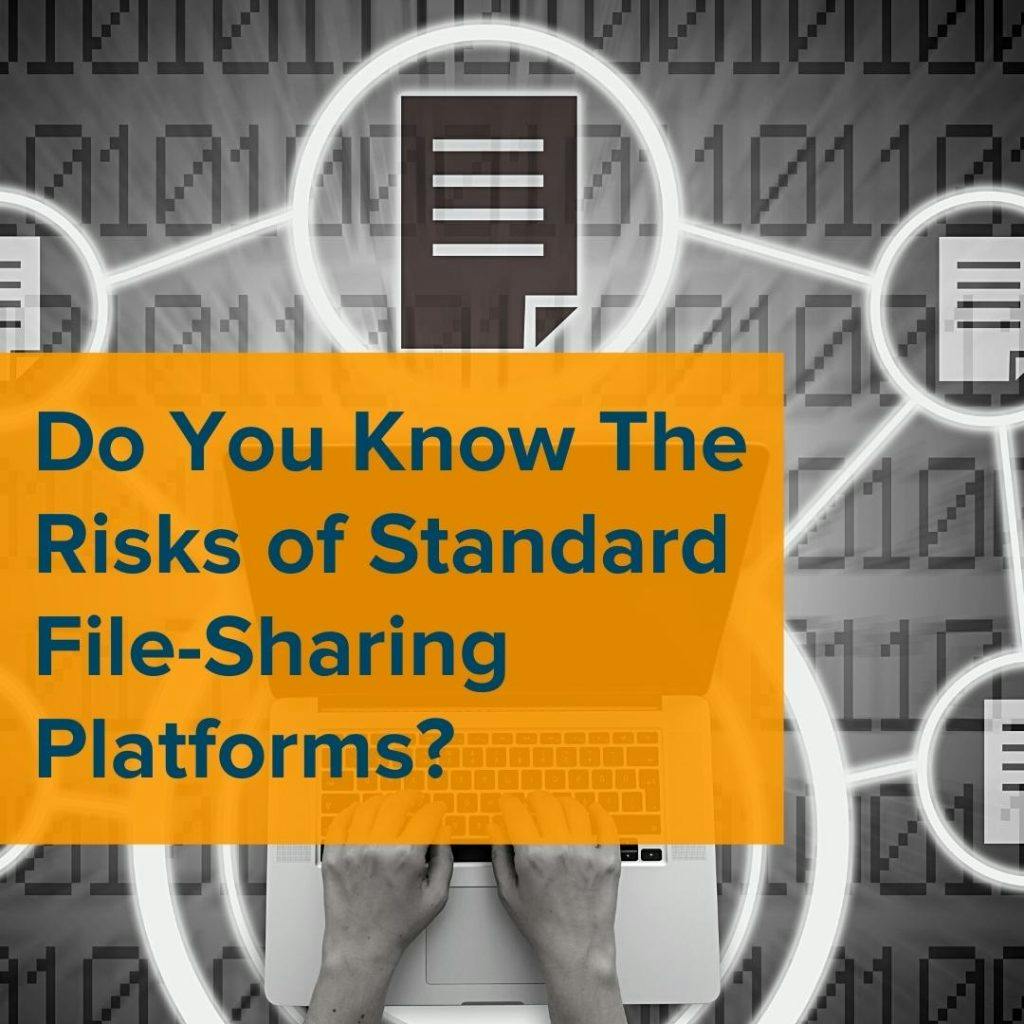Today, banks are under more pressure than they have ever been in the past. There are a lot of stresses that banking managers have to deal with. For example, it is the responsibility of managers to keep an eye on the market to try to not only protect the assets of their clients but also grow them. Then, they are also under a lot of pressure from clients who like to move money rapidly.
In addition, banks need to think about government rules and regulations, which can play a significant role in their daily operations. Finally, due to the large amounts of money that banks deal with, they are also under pressure from hackers and cybercriminals who would like to steal that information and pirate the assets of clients.
For all of these reasons, banks need to make sure they keep a close eye on their documents. Even though a significant percentage of daily banking operations have gone digital, it is still important for banks to make sure that they secure their documents accordingly. That is where file storage and transfer are critical.
What are some of the essential points that financial institutions need to keep in mind when it comes to secure file storage and transfer? Keep reading to find out.
File Storage: What Banks Need To Know
First, it is important to take a closer look at file storage. Some of the most important categories that banks need to think about include:
- Document Security: Financial institutions, such as banks and credit unions, deal with a large number of documents every day. Many of these documents contain a significant amount of sensitive financial information. It is critical for banks to keep this information secure, as a potential data breach could lead to some serious harm. They can have a significant impact on their reputation, and it could lead to a variety of lawsuits.
- Workflow and Accessibility: Next, it is important for banks to think about workflow and accessibility as well. Even though banks want to keep their files as secure as possible, they do not want to unnecessarily inhibit the access of their customers and clients. Otherwise, they could lose a significant amount of business. It is important for banks to balance security with accessibility. That way, they don’t worry about derailing their operation.
- Compliance: Finally, banks also have to think about important compliance issues. Given the central role that banks play in the economy, it should come as no surprise that the government keeps a close eye on them. There are numerous rules and regulations that banks must follow, such as SEC regulations, those related to the Dodd-Frank Act, and regulations that have been put down by the FTC. It is essential not to overlook the importance of compliance issues.
Ultimately, these are a few of the driving principles that banks need to think about when it comes to file storage. It is also worth taking a closer look at some of the compliance issues that will play a role, as all financial institutions must adhere to them.
The Risks of Standard File-Sharing Platforms
If you decide to use a standard file-sharing platform, there are several risks you could attract. Some of the biggest risks include:
- Data Breach: You may be focused on protecting your files, but not all of your employees have the technical capacity to spot issues and mitigate them. You must have a strong platform that can give you an extra layer of protection.
- Security Misalignment: If you need to share your information with another institution, you might be concerned that they do not take the same security steps that you do. You need to use a comprehensive file-sharing platform that will fix this issue.
- Low Encryption Levels: The encryption level is not necessarily appropriate with a standard file-sharing platform. Someone with the right tools might be able to cut through the encryption relatively quickly.
- Compliance Issues: If you use a standard platform, it may not be in compliance with the latest rules and regulations. You must make sure you are in complete control of all of your confidential information.
As you are looking for a file-sharing platform to use, keep these risks in mind. That way, you can find the right platform to mitigate the issues and place you in control of your information.
The Technical Requirements Banks Must Meet Regarding File Storage
There are several technical areas that banks need to consider when it comes to file storage. Some of the most important points to keep in mind include:
- A Properly Secured Database: Encryption is one of the most important tools that financial institutions have at their disposal. There are numerous document management systems available, but not all of them have appropriate security. Preferably, the file management system will be secured using 128-bit encryption, but it is better if the system can use 256-bit encryption. That way, banks can minimize the chances of someone taking advantage of a back door into their files.
- Strong Password Management Rules: This is also a tool that needs to use strong password management. Strong passwords come in many shapes and forms, but weak passwords are very easy to spot. It is helpful if the file management system requires the user to implement a strong password to protect the files adequately. This ensures financial institutions can reduce the chances of someone breaking into the server.
- Automated Retention: It is critical for financial institutions to make sure marketing materials, investment applications, and any related documents are locked down. That way, it is impossible for someone to delete them without following all appropriate regulatory protocols. Many financial institutions have had policies in place for shredding paper documents for a long time. Now, it is important for financial institutions to extend these requirements to electronic documents as well. A strong solution should automatically retain these documents, ensuring the organization is in compliance.
- Granular Permissions: A compliance system should also have granular permissions. What this means is that people should not have access to accounts that they don’t need to do their jobs. Not everyone needs access to confidential mortgage documents, just not everyone needs access to applications related to small business loans.
- Paper Trail: Obviously, financial institutions have a very high chance of being audited. One of the ways that financial institutions can streamline the process is to make sure there is always a paper trail available. An audit trail is important as it allows compliance managers and administrators to verify that employees are using their information appropriately. If there is no paper trail, an organization could be fined or sanctioned by a regulatory authority.
- Automatic Backups: Finally, there needs to be a backup plan in place. Ideally, organizations should follow the 3, 2, 1 backup rule. There must be three copies of the information stored in two separate locations, and at least one of those locations should be off-site. It is important to protect confidential information against ransomware attacks and natural disasters. Having adequate backups can do exactly that.
These are a few of the most important points that everyone in the financial world should keep in mind when it comes to file storage and management. If you are looking for the right solution for your needs, you need to rely on SmartFile.
The Benefits of Using SmartFile
Since there are so many threats that financial institutions face on a regular basis, it is critical to use the right storage solution. That is where SmartFile can help you. Some of the top benefits of using SmartFile include:
Transfer and Storage Encryption Levels
If you decide to use SmartFile, every file is encrypted by either 128-bit encryption or 256-bit encryption. In addition, every bit of this encryption is controlled by you. You can keep track of all of your documents in real-time. You don’t have to worry about going through some sort of hybrid cloud to access your passwords or case. You are in control of all of them.
In addition, if you want to change or delete your encryption keys, you can do so. If you are concerned that someone may have access to your encryption keys, but they no longer work for the company, you can change the encryption.
You can even take advantage of an HP 440 card that encrypts your files. Rely on a tool that will lock down your files even when they are in storage.
Comprehensive Monitoring and Reporting Features
With SmartFile, you will also have access to complete monitoring and reporting features. You need to know who is accessing your files, what they are doing with them, and where they are accessing them from. If there is an issue with one of your files, you need to know who was responsible for that action. That way, you can respond accordingly.
There are a lot of features you will have access to with SmartFile. You can use these features to take appropriate actions with all of your reporting and monitoring issues. Some of the top benefits include:
- You can create specific accounts that will give you total visibility. The global security controls of SmartFile are unparalleled.
- You also have the ability to control the access of each individual user. You can take advantage of granular permissions to limit your risk. That way, you only give people access to the files they need to do their job.
- There are certain tasks that you can automate as well. You should not have to do all of your clerical work by hand, and with access to automation features, you can save time.
- Finally, you get access to comprehensive reporting features as well. You should keep track of how many downloads and uploads are taking place, where they are taking place from, and what is being done with them. This is very important for government compliance issues.
Customizable Features and Rapid Updates
With SmartFile, you also get access to a wide variety of customizable features. Every bank is different, and you might have certain features that you would like to turn on and off from time to time. Furthermore, your needs may change over time. As your bank continues to grow, you might need to have access to a greater degree than scalability. With SmartFile, you can do that. You don’t have to worry about replacing the platform simply because your company gets bigger.
Furthermore, the landscape can change over time. There are new cybersecurity threats that might emerge, and updates have to be made to the platform to make sure you are properly protected. SmartFile always has new updates coming out, meaning you will always have access to the latest security features in the industry. You need to ensure your confidential files are protected, and with our updates, we will make sure that that happens.
For all of these reasons, you need to count on SmartFile, to help you protect the confidential files of your financial institution.
Trust SmartFile To Protect Your Banks
Ultimately, it is important for you to make sure that you are not only in compliance with government rules and regulations but also adequately protecting the files of your consumers.
If you are looking for a file-sharing platform that can streamline your operations without sacrificing protection, it would be our pleasure to assist you. We are proud to provide you with an industry-leading platform that can streamline your workflow and keep your information safe.
If you would like to learn more about how we can help you, contact us today to speak to a member of our team. We look forward to working with you.

